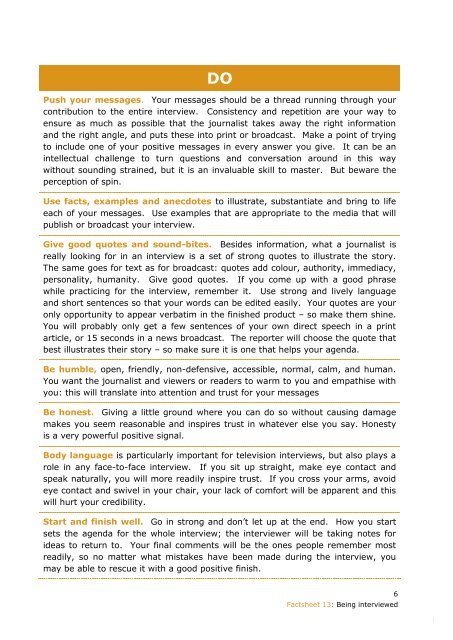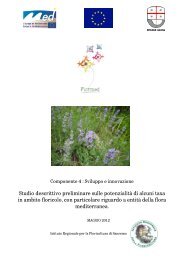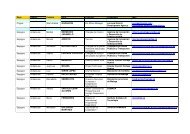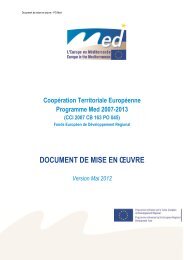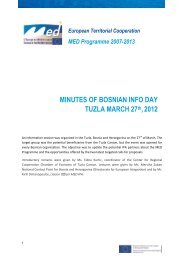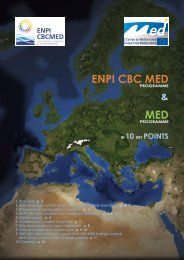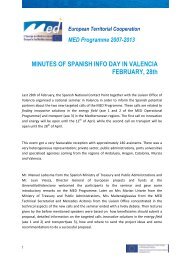MED Communication Handbook - Programme Med
MED Communication Handbook - Programme Med
MED Communication Handbook - Programme Med
You also want an ePaper? Increase the reach of your titles
YUMPU automatically turns print PDFs into web optimized ePapers that Google loves.
DO<br />
Push your messages. Your messages should be a thread running through your<br />
contribution to the entire interview. Consistency and repetition are your way to<br />
ensure as much as possible that the journalist takes away the right information<br />
and the right angle, and puts these into print or broadcast. Make a point of trying<br />
to include one of your positive messages in every answer you give. It can be an<br />
intellectual challenge to turn questions and conversation around in this way<br />
without sounding strained, but it is an invaluable skill to master. But beware the<br />
perception of spin.<br />
Use facts, examples and anecdotes to illustrate, substantiate and bring to life<br />
each of your messages. Use examples that are appropriate to the media that will<br />
publish or broadcast your interview.<br />
Give good quotes and sound-bites. Besides information, what a journalist is<br />
really looking for in an interview is a set of strong quotes to illustrate the story.<br />
The same goes for text as for broadcast: quotes add colour, authority, immediacy,<br />
personality, humanity. Give good quotes. If you come up with a good phrase<br />
while practicing for the interview, remember it. Use strong and lively language<br />
and short sentences so that your words can be edited easily. Your quotes are your<br />
only opportunity to appear verbatim in the finished product – so make them shine.<br />
You will probably only get a few sentences of your own direct speech in a print<br />
article, or 15 seconds in a news broadcast. The reporter will choose the quote that<br />
best illustrates their story – so make sure it is one that helps your agenda.<br />
Be humble, open, friendly, non-defensive, accessible, normal, calm, and human.<br />
You want the journalist and viewers or readers to warm to you and empathise with<br />
you: this will translate into attention and trust for your messages<br />
Be honest. Giving a little ground where you can do so without causing damage<br />
makes you seem reasonable and inspires trust in whatever else you say. Honesty<br />
is a very powerful positive signal.<br />
Body language is particularly important for television interviews, but also plays a<br />
role in any face-to-face interview. If you sit up straight, make eye contact and<br />
speak naturally, you will more readily inspire trust. If you cross your arms, avoid<br />
eye contact and swivel in your chair, your lack of comfort will be apparent and this<br />
will hurt your credibility.<br />
Start and finish well. Go in strong and don’t let up at the end. How you start<br />
sets the agenda for the whole interview; the interviewer will be taking notes for<br />
ideas to return to. Your final comments will be the ones people remember most<br />
readily, so no matter what mistakes have been made during the interview, you<br />
may be able to rescue it with a good positive finish.<br />
6<br />
Factsheet 13: Being interviewed<br />
�


